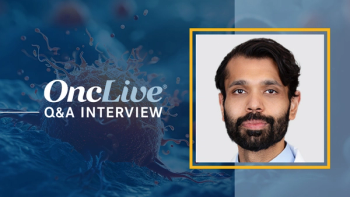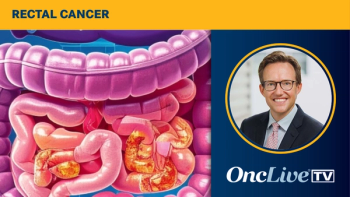
Dr. Vijayvergia on the Efficacy of Pembrolizumab in MSI-H Advanced Gastric Cancer
Namrata (Neena) Vijayvergia, MD, discusses the efficacy of pembrolizumab with or without chemotherapy in patients with microsatellite instability–high advanced gastric cancer.
Namrata (Neena) Vijayvergia, MD, assistant chief of Gastrointestinal Medical Oncology, an assistant professor in Department of Hematology/Oncology, and medical director of Medical Oncology at the Fox Chase Cancer Center, discusses the efficacy of pembrolizumab (Keytruda) with or without chemotherapy in patients with microsatellite instability–high (MSI-H) advanced gastric cancer.
In the phase 3 KEYNOTE-062 study (NCT02494583), approximately 5% of the patients in the pembrolizumab monotherapy arm were MSI-H, as well as 7% of patients in the chemotherapy-alone arm and 8% of those in the pembrolizumab plus chemotherapy arm, according to Vijayvergia. Results demonstrated that a number of MSI-H tumors were enriched in patients who were PD-L1 positive, Vijayvergia adds.
Moreover, a clear benefit with pembrolizumab plus chemotherapy was reported in this patient population over chemotherapy alone, Vijayvergia says. Data in early-stage disease also indicate that patients with MSI-H disease may not respond well to chemotherapy alone; this could also apply to the metastatic setting, Vijayvergia notes. Currently, pembrolizumab, with or without chemotherapy, appears to be an effective option for patients with MSI-H disease, Vijayvergia concludes.



































